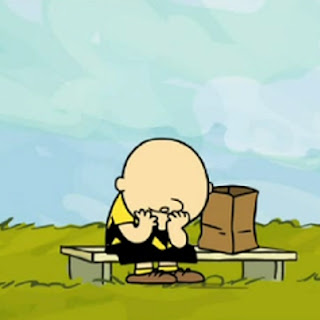I like to go to the cemetery when I need to clear my head. It's a great place to go when you need to think - it's quiet, steeped in nature, and no one bothers you. It's the only place in the city where people don't stop me to ask for directions.
I walk along the path between the headstones and think about my week, mulling over my problems, smiling at my victories, and letting the lives of those who've gone before me help me put things into perspective.
The sun is shining, but despite the pale blue sky I can see the moon. It looks like a small white button that has popped off a shirt and is waiting to be noticed. I stop to admire this scene and take a deep breath, the air almost smells of spring. At once I feel content and at peace until I'm distracted by the flapping of a bird's wing. I turn slowly to locate where the noise is coming from, when all of a sudden the sound multiples all around me.
Robins, more than I can count, are shooting into the air from beneath the shadows of the headstones at my feet. I stay perfectly still and let them fly past me to a portion of the path ahead. They land haphazardly amongst the stones and I try and count them - five, twelve, sixteen, no, twenty, twenty-one? As soon as I think I've counted them all they move and seem to add more to their ranks. They hop between the graves, poking at the grass, and standing on the stones, all the time flapping their tiny wings. The noise reminds me of waves crashing on a beach, but it doesn't sooth me, instead it makes the hairs on my arms stand on end.
I've never seen this many robins in one spot before, and I'm surrounded by them. Robins have a rich history in folklore, with their blood red breast tying into tales of hell fire and the crucifixion of Christ. But there is another tale that came to my mind as I stood as still as a statue amongst the graves - it is said that if a robin finds a dead body it will cover it with leaves or moss. This lore was depicted in Babes in the Wood, a story from the 1500s, where robins cover the dead bodies of abandoned children with foliage.
Newly dug graves dot the cemetery where I walk and I wonder if the robins have come to cover them. If lore is to be believed, maybe they are, but I don't stick around to find out. Instead I side step slowly away from the birds, keeping one eye on them and the other on the path that leads me to the street. Every time I move the robins stop flitting about the grass and watch me, so my progress is slow. Their movements and their gaze has unsettled me and my stomach feels like it's fluttering faster than their wings.
Robins are said to be a sure sign of spring, but in a graveyard maybe they signify something more, something older than lore.










